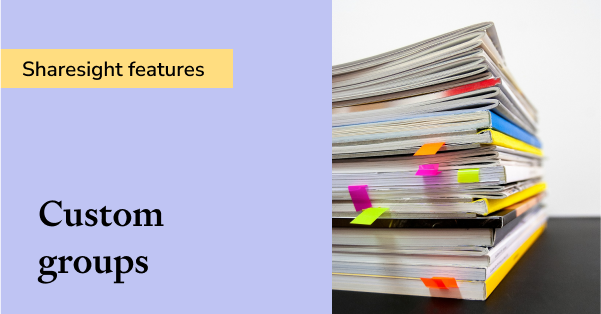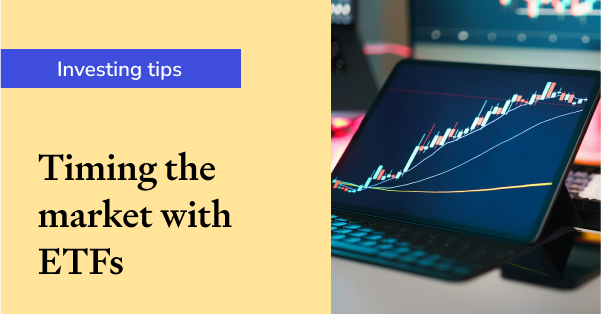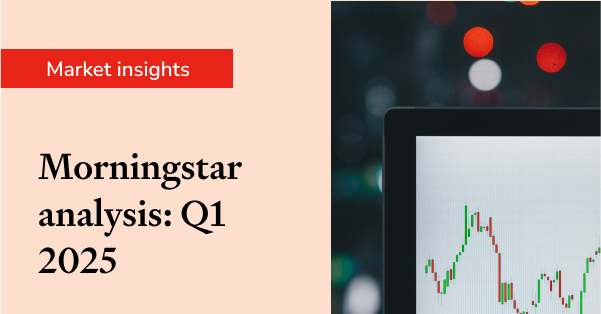What is an ISA in the UK?
An Individual Savings Account or ISA is a savings account that offers UK residents a favourable tax status when investing. First introduced in 1999, an exemption from both income tax and capital gains tax is the main difference between an ISA and other types of savings accounts. However, while an ISA lets investors earn interest without paying any income tax, they are limited in terms of how much they can top up these accounts.

How do ISAs work?
Every tax year savings account holders are given an ISA allowance to save or invest money up to a certain amount without paying tax on their returns. Cash and a broad range of investments can be held within the arrangement and there is no restriction on when or how much money can be withdrawn. The tax year runs from 6 April to 5 April the following year, meaning investors have until 5 April 2022 to use up their ISA allowance for the 2021-22 tax year, for example. The new tax year brings with it a new ISA allowance and any unused ISA allowance cannot be carried forward from one tax year to the next.
ISA types
There are several different types of ISA to suit the varying needs of UK residents. The four main types for adults are Cash ISAs, Investment ISAs (also known as a Stocks and Shares ISA), Innovative Finance ISAs and Lifetime ISAs, which are subject to strict rules. Each taxpayer has an annual investment limit (£20,000 as of 2020-21) which can be placed in a single ISA or split amongst any combination of the four types. An exception to this is the Lifetime ISA, which is capped at £4,000 each year, until the investor turns 50. Additionally, children under 18 may hold a Junior ISA, which has a separate annual limit and can’t be accessed by the child until they turn 18.
How do Investment ISAs work?
Stocks and Shares ISAs are a popular method of investing in the stock market as investors can access assets like shares, bonds, property and commodities − with the added benefit of not paying any tax on the capital gains or income (interest and dividends) they earn. In other words, the investor can keep everything they earn from an Investment ISA after charges and fees are taken. However, to hold a Stocks and Shares ISA you must be a UK resident aged 18 or over and it may be worth seeking financial advice before investing in one of the many stock exchanges you will be able to access. You can’t open a Stocks and Shares ISA for someone else.
What can I invest in?
Investment ISAs have the potential for higher returns than a cash deposit and offer the chance to invest in a broad range of assets including shares, bonds and trusts. As this suggests, the range of ISA-qualifying equity and securities investments is extensive. It includes:
-
Stocks and securities issued by a company incorporated anywhere in the world and listed on any HM Revenue & Customs recognised stock exchange.
-
Securities may include government bonds, corporate bonds, loans, loan stock, debentures and Eurobonds, provided they have at least five years to run when first acquired for the ISA.
-
Units in qualifying authorised Unit trusts and qualifying investment trusts
-
Shares in qualifying open ended investment companies (OEICs)
-
Units or shares in a relevant undertaking for collective investment in transferable securities (UCITS)
-
Investment companies with variable capital (ICVCs)
-
Shares acquired by employees from an approved all-employee savings related share option and/or profit-sharing scheme.
Why do investors invest through an ISA?
ISAs are designed to be simple accounts for making tax-free savings and investments and have very clear benefits. The Government introduced them to encourage people to save for the future. Account holders can pay a total of £20,000 a year into their Stocks and Shares ISA in the 2021-22 tax year. However, they can’t put money into the same type of ISA in the same tax year. For example, if they had two Stocks and Shares ISAs, they would need to wait until the next tax year to put money into the second ISA. Benefits include the ability to make a lump sum investment and/or regular or ad hoc contributions throughout the tax year. Any increase in the value of the underlying investments is free of capital gains tax while investors don’t have to declare ISAs on their annual tax return.
Track the performance of your ISA investments with Sharesight
Thousands of investors like you are already using Sharesight to manage their investment portfolios. What are you waiting for? Sign up and:
-
Track all of your investments in one place, including UK and international stocks, ETFs, mutual/managed funds, property and even cryptocurrency
-
Automatically track your dividend and distribution income from stocks, ETFs and mutual/managed funds
-
Run powerful reports built for investors, including Performance, Portfolio Diversity, Contribution Analysis, Future Income and Multi-Currency Valuation
-
See the true picture of your investment performance, including the impact of brokerage fees, dividends, and capital gains with Sharesight’s annualised performance calculation methodology
Sign up for a FREE Sharesight account and get started tracking your investment performance today.
![]()
Disclaimer: The above article is for informational purposes only and does not constitute a product recommendation, or taxation or financial advice and should not be relied upon as such. Always check with your financial adviser or accountant to obtain the correct advice for your situation.
FURTHER READING

8 ways to use Sharesight's custom groups feature
This blog explains our custom groups feature, including strategies that can help you gain deeper portfolio insights and make more informed investing decisions.

You can time the market – and ETFs are the way to do it
Marcus Today founder and director Marcus Padley discusses timing the market, and how investors can do this using exchange-traded funds (ETFs).

Morningstar analyses Australian investors’ top trades: Q1 2025
Morningstar reviews the top 20 trades by Australian Sharesight users in Q1 2025, and reveals where their analysts see potential opportunities.